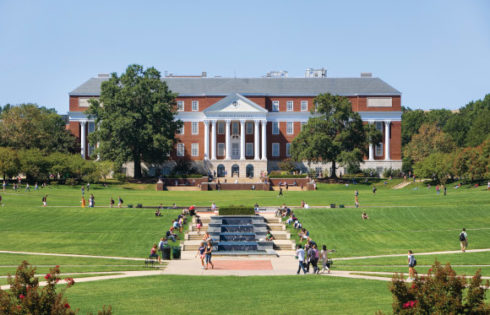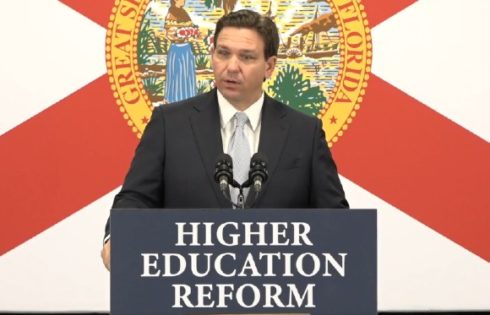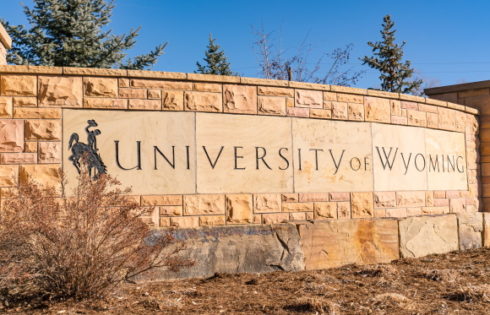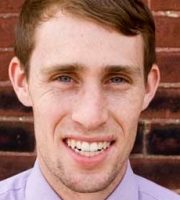
UPDATED
A bill before the South Dakota House of Representatives that seeks to protect free speech at the state’s public universities failed to pass out of committee on Friday.
Following a hearing on the legislation, House Bill 1073, the House Judiciary Committee voted to defer the measure. The bill’s sponsor, Republican Rep. Michael Clark, told The College Fix in an email on Friday afternoon that “for the most part this bill is mostly dead.” Though, Clark said he is considering other options available to him.
More than a dozen individuals spoke on the bill during Friday morning’s hearing before the judiciary committee. Proponents, which included speakers from prominent higher education watchdog groups, said the bill would expand free speech on campus and provide clarity on the institutions’ policies. Student leaders and higher education officials criticized the bill, saying it’s unnecessary, burdensome and invites litigation.
HB 1073 would make all outdoor spaces at the state’s public universities “public forums” and require those institutions to publish annual reports that detail the steps taken to foster intellectual diversity on campus.
The proposed legislation would allow universities to “maintain and enforce reasonable time, place and manner restrictions,” but notes that such measures must “employ clear, published, content, and viewpoint-neutral criteria, and provide for ample alternative means of expression.”
Additionally, the legislation calls on the public institutions to create “materials, programs, and procedures” that educate university administrators, police officers, professors and resident life officials on the free speech policies.
Testifying in favor of the bill, Joe Cohn, legislative and policy director for the Foundation for Individual Rights in Education, told lawmakers it provides the chance to ensure the state’s public universities are “the first class institutions you want them to be.”
Cohn said the bill not only helps eliminate policies that create free speech zones but also rules that require individuals to submit materials in advance of engaging in their free speech rights.
“Over and over and over again, courts have been finding those rules unconstitutional,” he said.
Blake Meadows, litigation counsel for the Alliance Defending Freedom, said the bill provides clarity regarding students’ free speech rights and provides a guide on how universities should structure their free speech policies.
“This bill is a blueprint that allows public universities to make sure that their policies comport with the constitution,” he said.
Also among those testifying in favor of HB 1073 was former University of South Dakota professor William Richardson. The retired political science professor said the measure would protect the university from potential censorship of campus speakers who hold controversial views.
“In the light of what’s been going on nationally at other universities, my support is especially animated by the way campus speakers sometimes are disinvited or shutdown,” Richardson said.
Though, critics of the bill testified that it’s unnecessary. Additionally, they told lawmakers that requirements included in the legislation would increase bureaucracy at the state’s public higher education institutions.
“I think [this bill] does two things. I think it’s pretty certain to increase costly bureaucratic mandates. I think it’s pretty likely to lead to lawsuits. I don’t think it has a tremendous effect on speech. I don’t think it has much of an effect on campus speech at all,” said Will Mortenson, representing the South Dakota Board of Technical Education and the state’s technical institutions.
Mike Rush, executive director of the South Dakota Board of Regents, said he agreed with Mortensen and argued the board of regents has already employed sufficient free speech policies.
Meanwhile, student government leaders from the University of South Dakota and South Dakota State told lawmakers their respective bodies each passed resolutions opposing HB 1073.
“The bill is redundant and unnecessary. It is an attempt at a solution to a problem that does not exist,” said University of South Dakota Student Government Association President Teagan McNary.
During discussion on the bill, Rep. Timothy Johns, a Republican, said freedom of assembly is subject to reasonable limitation and said that he was opposing the HB 1073 because he felt the measure is vague about what limitations can be imposed.
Republican David Lust said his decision on the legislation was a close call for him, but that he was ultimately swayed by the student testimony.
“We heard from South Dakota State and [University of South Dakota] students saying it’s not an issue. There is no change needed, and that means a lot to me. That bears a lot of weight,” Lust said.
While the bill failed in committee, Clark told The Fix that there is a bright spot. He said university leaders are listening to attorneys with groups like the Foundation for Individual Rights in Education and the 1st Amendment Partnership regarding free speech policies.
“[A]s a result of this bill they [are] willing to look at their policies and making some real changes. So while the battle for this bill may have been lost, the conversation that needs to happen has been started, and the right people are involved in the conversation,”
Meanwhile, the Argus Leader reports a corresponding bill in the state senate has yet to be scheduled for a committee hearing.
CORRECTION: The article originally said William Richardson taught at the University of San Diego. He actually taught at the University of South Dakota.
Like The College Fix on Facebook / Follow us on Twitter






Please join the conversation about our stories on Facebook, Twitter, Instagram, Reddit, MeWe, Rumble, Gab, Minds and Gettr.